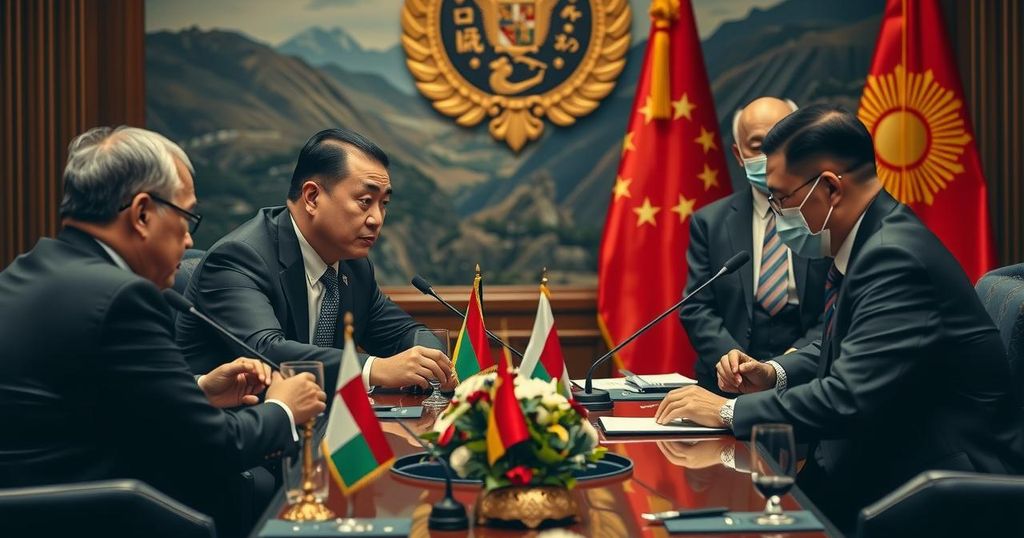A New Era of Kazakh-Mongolian Relations: Insights from Tokayev’s Visit
Kassym-Jomart Tokayev’s state visit to Mongolia is a landmark event, being the first by a Kazakh president in 16 years. It reflects a renewed focus on expanding diplomatic ties and trade relations, bolstered by the presence of a significant Kazakh diaspora in Mongolia. Trade volume has rebounded dramatically, with collaborative agreements signed in technology and nuclear energy. The visit emphasizes a strategic partnership aimed at mutual benefits and growth in Central Asia.
The recent state visit by President Kassym-Jomart Tokayev to Mongolia marks a significant milestone as it is the first such visit by a Kazakh president in sixteen years, highlighting a renewed commitment to strengthening bilateral ties. The historical context reveals that, despite having established diplomatic relations 32 years ago and hosting a considerable Kazakh diaspora in Mongolia, interactions between Astana and Ulaanbaatar largely stagnated under the leadership of former president Nursultan Nazarbayev. This hiatus may be attributed to Mongolia’s tumultuous political climate, characterized by frequent protests and instability, notably the violent unrest in July 2008 which resulted in public upheaval after disputed elections. The recent trip by President Tokayev reflects a strategic vision of fostering Central Asia’s renaissance, with Mongolia recognized as a crucial partner given the substantial Kazakh community of over 117,000 individuals— the largest national minority in Mongolia. The interactions during the visit included discussions aimed at elevating their relationship to a strategic partnership, a step forward after years of limited engagement. In terms of trade, recent statistics indicate a positive turnaround, with trade volume between the nations increasing from a mere $29.3 million in 2020 to an impressive $150 million in the last quarter of 2023. President Tokayev’s ambitious goal to boost trade to $500 million in the foreseeable future is indicative of this revitalization effort. The visit culminated in the signing of a significant investment agreement enabling Kazakhstan to aid Mongolia in developing remote sensing capabilities through satellite technology. Furthermore, a memorandum regarding nuclear energy cooperation was established, to share Kazakhstan’s expertise in this domain following a recent referendum on nuclear development. The exploration of vital mineral deposits was another critical aspect discussed, with Rustem Mustafin, the deputy director of the Center for Political Studies, underscoring the urgent global demand for critical raw materials essential in high-tech production. He emphasized the potential for collaboration to attract foreign investment and spur local technological advancements in both nations.
Kassym-Jomart Tokayev’s visit to Mongolia is pivotal in reinvigorating the diplomatic ties that have been dormant for over a decade. Historically, Kazakhstan and Mongolia have had a complex relationship affected by regional political dynamics, particularly Mongolia’s domestic instability, which has included violent protests over electoral disputes. The Kazakh diaspora in Mongolia provides a significant cultural and social linkage that supports the potential for enhanced cooperation. The two nations have established frameworks for collaboration across various sectors, including trade, technology, and energy, further emphasized by recent positive trends in their bilateral trade statistics. This visit seeks to reestablish Kazakhstan’s role in Central Asia and exploit mutual strengths for regional benefits.
In conclusion, President Tokayev’s visit to Mongolia signifies a strategic pivot towards re-engaging with a key regional partner after a lengthy hiatus in relations. This newfound collaboration focuses on expanding trade, sharing technological advancements in satellite capabilities, and cooperating in nuclear energy development. The historical bonds through the Kazakh diaspora catalyze this revival. As both countries advance toward mutual goals, they have substantial opportunities to diversify their economies and bolster regional stability through enhanced partnership initiatives.
Original Source: timesca.com




Post Comment